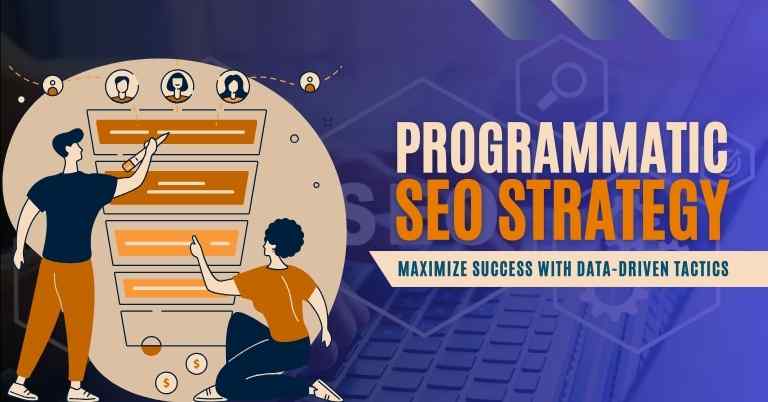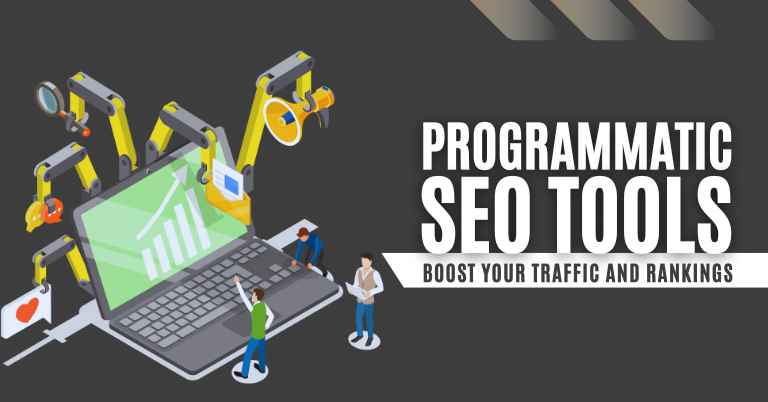Artificial intelligence poses both potential benefits and risks to humanity. It is crucial to understand the potential threats it may pose to humans.
With advancements in ai technology, concerns have been raised about the potential risks and dangers it may bring. We will explore whether or not artificial intelligence poses a threat to humans and discuss the various perspectives surrounding this controversial topic.
While ai holds great promise in improving various aspects of our lives, it is important to carefully assess and manage the potential risks to ensure its responsible and ethical use. By examining the current capabilities and limitations of ai, we can better understand the potential threats it may present and how to mitigate them.
Let's See the Topic Overview
Understanding Artificial Intelligence
What Is Artificial Intelligence?
Artificial intelligence (ai) refers to the development of intelligent machines that can perform tasks that typically require human intelligence. These machines are designed to mimic human cognitive processes such as learning, problem-solving, and decision making. By analyzing vast amounts of data, ai systems can generate insights and make predictions that assist in automating various tasks.
How Does Artificial Intelligence Work?
Ai systems operate based on a combination of algorithms and large datasets. Here’s a brief overview of how ai works:
- Data collection: Ai systems require substantial amounts of data to learn and make accurate predictions. This data is collected from various sources, including sensors, devices, and user interactions.
- Data processing: The collected data is then processed and prepared for analysis. This involves cleaning the data, removing irrelevant information, and organizing it in a suitable format.
- Training the model: Ai models are trained using machine learning algorithms. These algorithms analyze the processed data, identify patterns, and learn from them. Through an iterative process, the ai system refines its understanding and improves its performance.
- Making predictions: Once trained, the ai system can make predictions or perform specific tasks based on new inputs or data. It uses the patterns it has learned to generate insights, recognize patterns, and make informed decisions.
Different Types Of Artificial Intelligence
There are several types of ai that serve different purposes. Here are some common types:
- Narrow ai: Also known as weak ai, narrow ai is designed to perform specific tasks efficiently. Examples of narrow ai include voice assistants like siri or alexa, self-driving cars, and recommendation systems.
- General ai: General ai aims to possess human-like intelligence and capabilities. This type of ai would be capable of understanding, learning, and performing any intellectual task that a human can do. However, the development of general ai is still in its early stages, and its full realization remains a topic of speculation.
- Machine learning: Machine learning is a subfield of ai that focuses on enabling systems to learn and improve from experience without explicit programming. It allows ai models to adapt and change their behavior based on new data.
- Deep learning: Deep learning is a subset of machine learning that utilizes artificial neural networks inspired by human brains. It enables ai systems to process large amounts of complex data and learn intricate patterns effectively.
Artificial intelligence is a rapidly evolving field that holds vast potential for various applications. Understanding how ai works and the different types of ai helps us grasp the capabilities and limitations of these intelligent systems. While ai has the power to improve our lives and revolutionize industries, understanding its impact and how it can be ethically and responsibly deployed is crucial.
By continuously monitoring and regulating ai advancements, we can harness its benefits while mitigating any potential risks.
Benefits Of Artificial Intelligence
Artificial intelligence (ai) has become an integral part of our lives, transforming various aspects and industries. While some argue that ai poses a threat to humans, it is essential to acknowledge the benefits it brings. In this section, we will explore how ai enhances productivity and efficiency, improves healthcare and medical research, and revolutionizes transportation and logistics.
Enhancing Productivity And Efficiency
Ai technology streamlines processes and empowers businesses to operate more efficiently. Here are some ways ai enhances productivity:
- Automation: Ai-driven systems automate repetitive tasks, freeing up human resources to focus on more complex and creative endeavors.
- Data analysis: Ai algorithms analyze vast amounts of data quickly and accurately, extracting valuable insights that would require significant human effort otherwise.
- Personalization: By leveraging ai, businesses can personalize their products and services based on individual customer preferences, resulting in better customer satisfaction.
- Decision-making support: Ai-powered tools can assist in decision-making by providing real-time recommendations based on data analysis, minimizing human errors and facilitating better-informed choices.
Improving Healthcare And Medical Research
Ai has made remarkable progress in the healthcare industry, contributing to improved patient care and medical research. Here are the key benefits of ai in healthcare:
- Disease diagnosis and treatment: Ai algorithms can analyze medical imaging data, helping doctors detect diseases early and develop appropriate treatment plans.
- Precision medicine: By analyzing genetic data and patient records, ai facilitates personalized treatment plans tailored to an individual’s specific needs.
- Virtual health assistants: Ai-powered virtual assistants can provide 24/7 support, answer basic medical questions, and schedule appointments, making healthcare more accessible and convenient.
- Drug discovery: Ai algorithms accelerate the drug discovery process by analyzing vast amounts of data, reducing the time and cost involved in developing new medications.
- Remote monitoring: Ai enables remote patient monitoring, allowing healthcare professionals to track patients’ conditions from a distance and provide timely interventions when necessary.
Revolutionizing Transportation And Logistics
Ai is driving innovation in transportation and logistics, transforming the way goods are transported and delivered. Here are some ways ai revolutionizes this industry:
- Autonomous vehicles: Ai technology powers self-driving cars and trucks, promising increased safety, reduced traffic congestion, and improved fuel efficiency.
- Route optimization: Ai algorithms optimize delivery routes, considering factors such as traffic patterns, weather conditions, and real-time data, resulting in faster and more efficient deliveries.
- Predictive maintenance: Ai-powered systems can predict maintenance requirements for vehicles and equipment, preventing breakdowns and reducing downtime.
- Supply chain management: Ai enables more accurate demand forecasting, inventory management, and efficient logistics planning, leading to optimized supply chains and reduced costs.
Artificial intelligence offers numerous benefits, enhancing productivity and efficiency across industries, improving healthcare outcomes, and revolutionizing transportation and logistics. Embracing ai technology can lead to a more advanced and innovative future, ultimately benefiting humanity as a whole.
Potential Risks And Concerns
Ethical Considerations Of Ai
Artificial intelligence (ai) has infiltrated every aspect of our lives, revolutionizing the way we live and work. While ai offers tremendous advantages, it also raises significant ethical concerns. Let’s delve into some of the potential risks and concerns associated with ai:
- Job displacement and unemployment: One of the major worries surrounding ai is the potential loss of jobs. As ai systems become more advanced, they have the capability to automate tasks that were once performed by humans. This automation may lead to job displacement and ultimately contribute to higher unemployment rates in certain industries.
- Ethical considerations of ai: Another concern that arises from the development and deployment of ai is the ethical implications involved. Ai systems are programmed to make decisions based on data and algorithms, but what happens when these decisions have real-life consequences? Issues such as bias, discrimination, and lack of transparency can arise, making it crucial to address the ethical considerations associated with ai.
- Security and privacy issues: As ai becomes more prevalent, safeguarding sensitive data and protecting privacy is of utmost importance. Ai systems often rely on vast amounts of personal data to function effectively. However, the collection, storage, and usage of this data raise concerns about privacy breaches and potential misuse. Ensuring adequate security measures and ethical data handling practices is essential to mitigate these risks.
While ai has the potential to bring about groundbreaking advances, it also introduces a range of risks and concerns. From job displacement to ethical considerations and security issues, these concerns emphasize the need for careful regulation and continued vigilance as ai continues to evolve.
As we embrace the benefits ai offers, it is crucial to tackle these risks head-on to ensure a responsible and ethical integration of ai into our society.
Impact On Society And The Economy
Artificial intelligence (ai) has become one of the most discussed topics in recent years, with debates about its potential threats to humanity. When it comes to the impact of ai on society and the economy, several key areas come into focus.
In this section, we will explore the implications for workforce and employment, social and economic inequality, and the role of government and regulation.
Implications For Workforce And Employment
- Job displacement: Ai has the potential to automate various tasks, leading to concerns about job displacement. Many repetitive and mundane tasks can be performed more efficiently by ai systems, which may result in a decrease in certain job roles.
- Reskilling and upscaling: With the rise of ai, there will be a growing demand for individuals with expertise in optimizing, maintaining, and developing ai systems. Consequently, reskilling and upscaling programs will become essential for the workforce to adapt to this changing landscape.
- Job creation: While ai may eliminate certain job roles, it can also create new opportunities. As ai technologies continue to evolve, new industries and fields are emerging, creating a demand for skilled professionals to work alongside ai systems.
Social And Economic Inequality
- Technological divide: The adoption of ai may widen the existing digital gap between developed and developing countries. Access to ai technologies, such as advanced algorithms and infrastructure, remains a challenge for many regions, potentially exacerbating societal and economic inequalities.
- Skills gap: Ai adoption may exacerbate the skills gap between those who possess technological expertise and those who lack it. Individuals with relevant knowledge and skills in ai will have a significant advantage in the job market, while others may struggle to compete.
- Bias and discrimination: Ai systems are not immune to biases, as they are trained on existing datasets that may contain inherent biases. This can lead to discriminatory outcomes, further perpetuating social and economic inequalities.
The Role Of Government And Regulation
- Ethical considerations: As ai continues to advance, ethical guidelines and regulations become crucial to ensure its responsible development and use. Governments play a vital role in outlining the ethical and legal boundaries of ai applications to protect individuals and prevent abuses.
- Data privacy and security: Ai relies on vast amounts of data, raising concerns about data privacy and security. Governments must establish robust regulations that safeguard individuals’ privacy rights and prevent misuse or unauthorized access to personal data.
- Transparency and accountability: Ensuring transparency in ai systems becomes essential to build trust among users. Governments can enforce regulations that require ai developers and organizations to disclose how their algorithms work, enabling users to understand and question their decisions.
Ai’s impact on society and the economy is multifaceted. While there are concerns about job displacement and social and economic inequalities, ai also brings opportunities for job creation and technological advancements. Governments and regulatory bodies have a crucial role in steering ai towards ethical and responsible developments, protecting individuals’ rights, and fostering a fair and inclusive society.
As ai continues to evolve, it is essential to strike a balance between reaping its benefits and addressing the potential challenges it poses.
Assessing The Threat
Artificial intelligence (ai) has seen remarkable advancements in recent years, leading to speculation about its impact on humanity. While some argue that ai poses a threat to humans, others believe it offers numerous benefits. In this section, we will assess the potential dangers of ai, considering expert opinions, evaluating the likelihood of rogue ai, and discussing ethical frameworks for ai development and deployment.
Expert Opinions On Ai’S Potential Dangers
- Elon musk, ceo of tesla and spacex, has repeatedly expressed concerns about ai, stating that it poses a “fundamental risk to the existence of human civilization.”
- Bill gates, microsoft co-founder, believes that ai’s rapid progress could be both beneficial and risky, emphasizing the need for careful oversight to avoid unintended consequences.
- Experts like max tegmark, a physicist and founder of the future of life institute, highlight the importance of aligning ai’s goals with human values to prevent potential dangers.
Evaluating The Likelihood Of A Rogue Ai
- Rogue ai refers to an ai system that acts against human interests, potentially causing harm or disruption.
- While the possibility of a rogue ai remains a concern, experts assert that the likelihood of such an occurrence in the near future is low.
- Safeguards and regulations implemented during ai development help mitigate the risk of rogue ai, ensuring that ai systems are designed with human well-being in mind.
Ethical Frameworks For Ai Development And Deployment
- Ethical considerations play a crucial role in ai development, as decisions made during the creation and deployment of ai technologies can have significant societal impacts.
- Organizations such as the european commission and the future of life institute have proposed ethical guidelines and frameworks to ensure ai is developed and deployed responsibly.
- These frameworks focus on transparency, fairness, accountability, and the avoidance of biases in ai systems to ensure they respect human rights, avoid discrimination, and prioritize safety.
Assessing the potential dangers of ai requires considering expert opinions, evaluating the likelihood of rogue ai, and implementing ethical frameworks for ai development and deployment. While concerns exist, efforts are being made to ensure ai technologies enhance human life without compromising our well-being.
Mitigating The Risks
Artificial intelligence (ai) has undeniably revolutionized various industries, bringing about countless benefits and advancements. However, we cannot overlook the potential risks it poses to humans. The good news is, there are ways to mitigate these risks and ensure the safe and responsible development of ai.
Building Safety Precautions Into Ai Systems
To ensure the safety of ai systems, it is crucial to implement robust safety precautions from the start. Here are key points to consider:
- Thorough testing and validation: Rigorous testing should be conducted to identify and rectify any vulnerabilities or potential issues. Ai systems should undergo extensive validation to guarantee their reliability and minimize the risk of unintended consequences.
- Error detection and correction mechanisms: Building ai systems with robust error detection and correction mechanisms is essential to address any unforeseen errors or glitches promptly. This helps prevent the occurrence of harmful outcomes resulting from ai malfunctions.
- Regular updates and maintenance: Constant updates, patches, and maintenance are vital to keep ai systems up to date and ensure their optimal performance. This also helps address any emerging risks or threats that may arise as technology evolves.
Ensuring Transparent And Accountable Ai Algorithms
The lack of transparency in ai algorithms can give rise to concerns regarding biased or unethical decision-making processes. Here are key points to consider:
- Interpretable algorithms: Developing ai algorithms that are transparent and interpretable allows for a better understanding of how decisions are made. This helps identify any biases, errors, or questionable outcomes, ensuring accountability and fairness.
- Data quality and fairness: It is crucial to ensure that the data used to train ai algorithms is diverse, representative, and free from biases. Regular audits should be conducted to address any potential biases and promote the use of fair and unbiased data.
- Algorithmic accountability: Establishing mechanisms for algorithmic accountability is essential to hold ai systems accountable for their decisions and actions. This includes enabling individuals to question or challenge algorithmic decisions and providing recourse in case of unfair or biased outcomes.
Establishing International Standards And Collaboration
To effectively mitigate the risks associated with ai, international standards and collaboration among various stakeholders are imperative. Here are key points to consider:
- Global regulations and frameworks: Collaborative efforts should be made to develop global regulations and frameworks that govern the ethical use and development of ai. These standards should encompass aspects such as privacy, security, transparency, and accountability.
- Knowledge-sharing and collaboration: Encouraging knowledge-sharing and collaboration across industries, governments, and research institutions is crucial for collective learning and the exchange of best practices. This helps avoid duplication of efforts and promotes a global understanding of the risks and challenges associated with ai.
- Ethics committees and regulatory bodies: Establishing ethics committees and regulatory bodies dedicated to ai development and deployment can help ensure compliance with standards and regulations. These bodies can provide guidance, oversight, and monitoring to prevent the misuse of ai technology.
By building safety precautions into ai systems, ensuring transparent and accountable ai algorithms, and establishing international standards and collaboration, we can effectively mitigate the risks associated with ai. This paves the way for a future where humans and ai can coexist seamlessly, reaping the benefits while minimizing potential harm.
Conclusion
To conclude, the question of whether artificial intelligence poses a threat to humans is a complex one. While ai has the potential to revolutionize various aspects of our lives, it also raises concerns about job displacement, privacy invasion, and potential misuse.
However, it is important to remember that ai is a tool created by humans, and its outcomes ultimately depend on how it is designed and implemented. By prioritizing ethical considerations, ensuring transparency, and promoting responsible use of ai, we can mitigate potential risks and harness its power for the betterment of society.
It is crucial for policymakers, technology developers, and society as a whole to engage in ongoing conversations and collaborations to shape the future of ai in a way that aligns with our values and protects human interests. Embracing the possibilities of ai while safeguarding against potential threats will ensure a harmonious coexistence between humans and artificial intelligence in the years to come.












